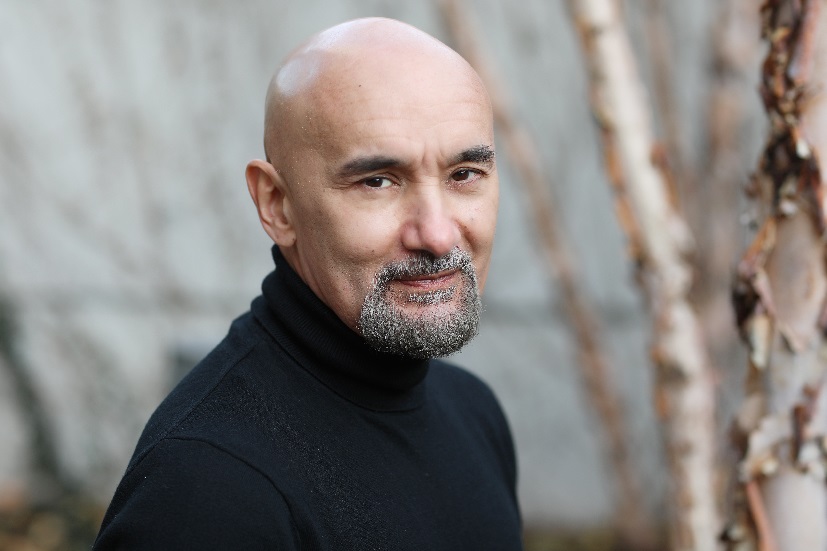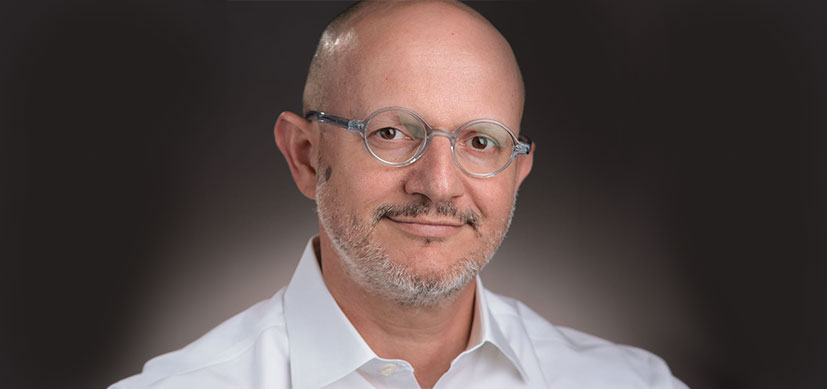In Memoriam: Hector Wong, MD, 1963-2022
Post Date: January 24, 2022 | Publish Date:

It is with deep sadness that we mourn the loss of Hector Wong, MD, vice chair of the Department of Pediatrics at Cincinnati Children’s and a leader in critical care medicine research, who passed away unexpectedly Jan. 23, 2022. He was 58.
Wong was a world-class academic physician scientist who worked tirelessly to advance Cincinnati Children’s clinical, research and education missions. He cared for patients and families here for more than 25 years; serving as director of the Pediatric Critical Care Medicine Fellowship Program until 2004; and director of the Division of Critical Care Medicine until 2020.
His own research spanned from basic to translational to clinical with a focus on complications that arise from severe sepsis and septic shock. He also grew the critical care medicine program at Cincinnati Children’s into one of the preeminent academic critical care divisions in the country.
In February 2020, Hector was among the leaders in the field who crafted the Surviving Sepsis Campaign, comprising the first national set of guidelines for treating sepsis in children. The guidelines were presented at the Society for Critical Care Medicine (SCCM) congress and published in Pediatric Critical Care Medicine.
“Hector was an amazing leader and colleague. While so many know him as a talented and successful scientist, he was also a dedicated pediatrician who still took care of sick kids in the PICU and loved doing so,” says Erika Stalets, MD, MS, interim director, Critical Care, and associate chief of staff, Critical Care Services. “He led with trust and mutual respect and was a straight shooter. He supported and encouraged our young faculty and fellows unwaveringly–always investing in their success. We’ve lost a foundational pillar of critical care.”
Frequently funded by the NIH, Wong epitomized Cincinnati Children’s “bedside to bench to bedside” approach. His lab has developed a robust database of biological samples and clinical data for children with sepsis that serves as the backbone for hundreds of research studies.
In recent years, Wong and colleagues developed a first-of-its-kind tool to help identify sepsis early on, allowing for aggressive protection strategies. The Pediatric Sepsis Biomarker Risk Model (PERSEVERE-II), draws from biomarkers and clinical data to enable physicians to start medical interventions much earlier and with greater precision.
“I started working with Hector in 2008 when I was part of the CTSA program there (Clinical and Translational Science Awards). I helped him with an ARRA supplement grant (American Recovery & Reinvestment Act of 2009), from which we developed the risk stratification tools that he was so well known for,” says Christopher Lindsell, PhD, director of the Institute for Clinical and Translational Research at Vanderbilt University. “When I moved to Vanderbilt four years ago, we kept the collaboration going, and we were just starting to look at PERSEVERE in Covid-19.”
Lindsell continues: “He was a strong believer that our work would change lives. In his very last e-mail to me he wrote ‘I had a spasm of optimism so I submitted our paper to a better journal.’ That summarizes his outlook on life.”
Over the course of his career, Wong published more than 200 peer-reviewed manuscripts.
A Confident Leader
“Whether at the bedside or the lab bench, Hector always focused on the science behind a problem and the data available instead of biases and hunches. He could rapidly get to the heart of an issue – whether clinical or research – and propose solutions that were aimed at making a child’s life better. He always put the child and their family first and was a great role model for all who had the privilege of working with him at the bedside, the lab, or in the boardroom. I will miss him,” says Tracy Glauser, MD, associate director of the Cincinnati Children’s Research Foundation.
Among his leadership roles at Cincinnati Children’s, Wong served as interim chair of the Department of Pediatrics, Chief Medical Officer and director of the Research Foundation after Margaret Hostetter, MD, retired and until Tina Cheng, MD, MPH, arrived in November 2020.
He also led Cincinnati Children’s response to the COVID-19 pandemic, maintaining a calm and steady hand during a time of uncertainty. He was a source of reliable information for staff and our community, including school administrators from around the region who joined monthly town hall sessions hosted by Cincinnati Children’s.
Widely recognized expertise
Wong was among 132 Cincinnati Children’s physicians listed as Cincinnati’s “Top Doctors” in Cincinnati Magazine’s January 2022 issue.
Wong was a longtime grantee of the National Institute of General Medical Sciences (NIGMS) who served in a number of high-level roles in his field.
“He devoted himself to the scientific pursuit of understanding the complexity of sepsis with a focus on critically ill children. He served the National Institutes of Health on study sections as a reviewer and as an advisor appointed to the National Advisory General Medical Sciences Council. His personal dedication to medical research and his mentorship of future physician-scientists will be sorely missed,” says Brittany Merth, a spokeswoman for the NIGMS.
Wong’s role here also involved close collaboration with colleagues at the University of Cincinnati.
“Dr. Wong was a tremendous collaborator and a strong advocate for the tight bonds between Cincinnal Children’s and the College of Medicine. It has always been a pleasure having him as one of our faculty leaders, especially when he was selected two years ago to serve as interim chair of pediatrics,” says Andrew Filak Jr., MD, senior vice president for health affairs and Christian R. Holmes Professor and Dean. “His impact on the health of children and pediatric medical education will be long-lasting.”
Former Cincinnati Children’s Chief-of-Staff Derek Wheeler, MD, MMM, MBA — now Chief Medical Officer at Lurie Children’s Hospital in Chicago, recalled Wong’s influence on his life in a Jan. 24 blog post: “To say that the news of Hector’s death was unexpected and shocking is a vast understatement. His loss has been felt by many. To say that his impact on the care of critically ill children and the field of pediatric critical care medicine will be felt for decades is an even greater understatement. He was one among those very rare quadruple threats – a superb clinician-scientist, a compassionate and gifted physician, an incredible teacher, and a great mentor.”
A Dedicated Mentor
Colleagues say his greatest accomplishments include the mentorship and development of many faculty and researchers.
“He was a dedicated advocate for trainees and junior faculty, generously providing them with the skills and confidence they needed for success in academic careers,” says Jessica Kahn, MD, MPH, director, Adolescent and Transition Medicine. “He was also a powerful champion for faculty career development, working closely with the Office of Academic Affairs and Career Development team on all aspects of academic affairs including faculty promotions, mentorship, networking, leadership, and diversity, equity, and inclusion efforts.”
Wong was a deeply committed supporter of underrepresented minority faculty at Cincinnati Children’s.
View Faculty Awards Tribute to Dr. Wong
“Hector respected and embraced difference, was always open to listening to differing points of view and had a gift for leveraging those differences to create learning opportunities for himself and others,” says Jamilah Hackworth, EdD, associate director, Office of Academic Affairs and Career Development. “He regularly attended Black Faculty and Staff Alliance (BFSA) meetings and always made himself available to discuss and help resolve any challenge that underrepresented minority faculty members may have been experiencing.”
A Voice of Calm
“Hector was such a cornerstone here,” says Steve Davis, MD, MMM, MS, president and CEO at Cincinnati Children’s. “I met him when he was a first-year fellow at Pittsburgh Children’s. He was a larger-than-life figure. He could always be counted on to remain calm and inspire confidence in those around him during any challenging situation. As well as being a superb clinician, he was a brilliant scientist and a role model for physician scientists. He will be sorely missed.”
Adds Tina Cheng, MD, MPH, director of the Research Foundation: “Hector was an extraordinary, highly respected colleague and physician. He loved Cincinnati Children’s, and we feel his loss deeply. Our heartfelt condolences to his family.”
Beyond the walls of Cincinnati Children’s, Wong had a passion for baseball and for supporting children as a coach. His survivors include his parents, his wife, Sue Poynter, MD, MEd, director of the Pediatric Residency Training Program at Cincinnati Children’s, and four children.
Memorial Information
Many colleagues have asked how they can honor Dr. Wong’s legacy. His family requests that donations be directed to:
Ronald McDonald House
View guidance for online or mailed donations
Reds Urban Youth Baseball League
View guidance for mailed, phone, or online donations
Please choose “Reds Youth Urban League” when prompted to select a program.
Cincinnati Children’s Hector Wong Fund
Supports Critical Care research and training as well as Diversity, Equity and Inclusion
Please select “Other” under Additional Information and indicate gift is for the “Hector Wong Fund.”
Read More About Hector Wong’s Work
Education
MD: University of Medicine and Dentistry of New Jersey-Robert Wood Johnson Medical School, Piscataway, NJ, 1989.
Residency: Department of Pediatrics, George Washington University School of Medicine, Children’s National Medical Center, Washington, DC, 1990 to 1992.
Fellowship: Clinical Fellow, Department of Anesthesiology, Division of Pediatric Critical Care Medicine, University of Pittsburgh School of Medicine, Children’s Hospital of Pittsburgh, Pittsburgh, PA, 1992 to 1995; Research Fellow, Department of Pharmacology, University of Pittsburgh School of Medicine, Pittsburgh, PA, 1992 to 1995.
Research Highlights
Details about successful tests of the PERSEVERE platform were published online Nov. 13, 2019, in Science Translational Medicine.
More PERSEVERE findings were published in April 2020 in the American Journal of Respiratory & Critical Care Medicine.
PERSEVERE Passes Early Accuracy Test | Research Horizons (cincinnatichildrens.org)
View 2016 presentation: How Will We Assess Children with Suspected Sepsis





